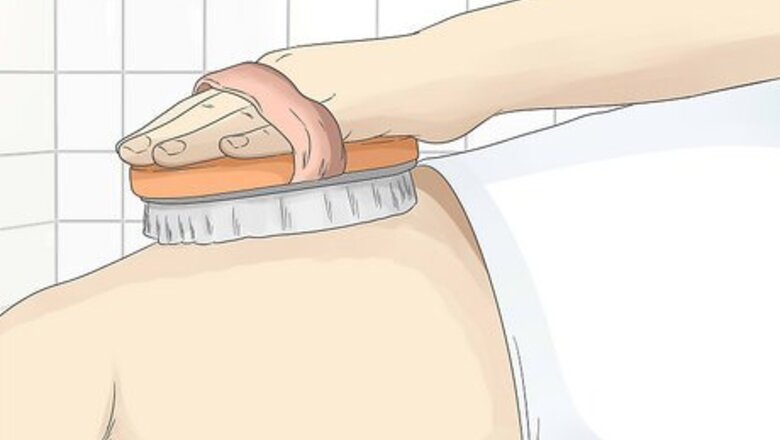
views
Have a Daily Skin Care Regimen
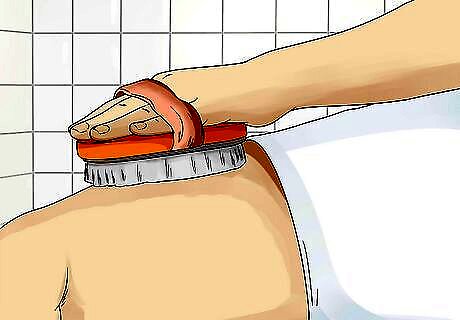
Start each day with dry brushing. Dry brushing is an ancient exfoliation technique designed to slough off dead skin and stimulate your body's circulation. Dry brushing once or twice a week makes your skin look brighter, and if you keep up the routine your skin will begin to glow. Choose a dry brush made from natural fibers, rather than plastic bristles. Natural bristles aren't as rough on your skin. Brush your body using short, firm strokes from your outer extremities toward your heart. Brush your legs, torso and arms. Use a softer, smaller brush for your face. Always start with dry skin and a dry brush. Brushing your skin while wet won't achieve the same effect. Avoid dry brushing if you have sensitive skin or a skin condition, like eczema or psoriasis, since the practice can irritate your skin. Even if you don't have any of these conditions, you should also stop or decrease how often you dry brush if you notice any redness, pain, or sensitivity afterward.

Take a cool shower. Rinse off your skin with cool, not hot, water. Hot water is hard on your skin and causes it to dry out and toughen. Use warm water at the beginning of your shower to gently wash away dirt. At the end, switch to cool water to tighten and tone your skin. Generally, you should only shower once a day for about ten minutes. Longer showers can dry out your skin. When you wash your face, splash it with cool water instead of hot water. Save hot baths for special occasions. They're good for the soul, but not necessarily for the skin.

Exfoliate in the shower if you didn't dry brush. You can use a loofah, wash cloth, or exfoliating mitts to scrub your skin while showering. You also use a body scrub. Gently rub the cloth over your skin. You may want to use a separate wash cloth for your body and your face. Make sure to clean these tools regularly to prevent the build-up of bacteria. Bacteria can cause blemishes and make your skin texture appear rough.
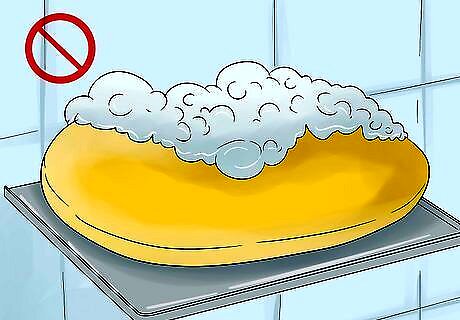
Don't use too much soap. Commercial body washes and scrubs, as well as many bar soaps, contain detergents that dry out your skin and leave a residue that causes it to look dull. Use a natural, oil-based soap, or forego soap and use plain water. Try only washing areas of your body that regularly become dirty or sweaty, such as feet, genitals, and armpits. For dry areas of your skin, such as elbows, shins, and forearms, you just need water.

Moisturize your skin. Dry your skin by patting yourself dry thoroughly. Do not leave your skin damp. Then apply lotion or another healing moisturizer to your skin to seal in the moisture and protect your skin from dry air throughout the day. Try these moisturizers for shining, healthy skin Coconut oil. This sweet-smelling substance melts into your skin and gives it a beautiful glow. Shea butter. This moisturizer is especially good for use on your fragile facial skin. You can also apply it to your lips. Lanolin. Sheep produce lanolin to keep their wool soft and dry, and it acts as an excellent defense against cold winter air. Olive oil. For those occasions when your skin needs a deep-conditioning treatment, smooth olive oil over your body and let it seep in for 10 minutes. Rinse it off with lukewarm water and pat dry. Lactic acid lotion is available from drugstores. It leaves dry, scaly skin feeling pliable and soft. Aloe vera gel is a natural option that is perfect for sensitive or sun-damaged skin.

Cater to your skin type. Some people have dry, flaky skin, others have oily skin, and many have some combination of the two. Know what parts of your body need special care, and make sure your daily routine takes them into account. Treat acne, whether on your face or body, with extra care. Avoid dry brushing over acne, and don't use harsh soaps or chemicals that might exacerbate it. Eczema, rosacea and other issues associated with dry skin must be handled with care. Use products that don't irritate your condition further, and talk to your doctor about getting a prescription to treat your skin if necessary.
Make Healthy Lifestyle Choices

Start an exercise routine. Exercise tones your skin and improves your circulation. It also improves your overall health, which shines through in your skin. Sweat is actually helpful for cleansing dead skin cells and oil from your skin. Incorporate the following types of exercises into your routine three or more times per week: Cardio exercises like power walking, running, biking, or swimming. These exercises get your blood pumping and give your skin a healthy hue. Weight training exercises with dumbbells. Strengthening your muscles improves your skin tone, making it look smoother. Yoga and flexibility exercises. These types of exercises tone your muscles and make your skin look tighter.

Eat a balanced diet. When you aren't getting the nutrients you need, it shows in your skin. Get your glow back by eating plenty of fruits, vegetables, lean protein, and whole grains. Incorporate foods that are especially healthy for skin, including the following: Avocados and nuts. These contain healthy fats that your skin needs to retain its elasticity. Nutrient-rich plants. Focus on produce that contains vitamin A, E, and C, like sweet potatoes, carrots, kale, spinach, broccoli, mangoes and blueberries.

Drink a lot of water. Water plumps up your skin cells and makes your skin look fresh and bright. When you're dehydrated, your skin starts to dry out. Drink enough water (based on your sex, age, and lifestyle) to keep your skin healthy. If you don't enjoy drinking glass after glass of water, these choices will also keep you hydrated: Watery fruits and vegetables, like cucumbers, lettuce, apples, and berries. Herbal tea and other tea that isn't caffeinated. Try a glass of soda water with a squeeze of lemon for a refreshing alternative. If plain water isn't your thing, you can make flavored water by letting fruit or herbs soak in the water before drinking.
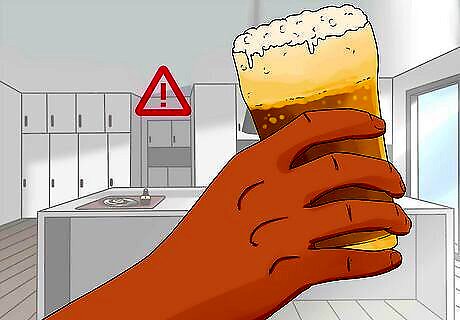
Avoid substances that are hard on skin. No matter how religiously you stick to your daily skin care routine, using certain substances will set you back on your quest for beautiful skin. Limit or completely cut out these skin-harming substances: Tobacco. Tobacco stains skin and causes premature wrinkles. When it comes to damaging skin, tobacco is one of the worst culprits. Alcohol. Too much alcohol can stretch skin out, especially around and under the eyes, because it causes the body to retain water. It also reduces Vitamin A in the skin and can cause broken blood vessels. Limit alcohol to one or two drinks a few times a week. Caffeine. Drinking a lot of caffeine dehydrates your body, which has an adverse effect on your skin. Limit your coffee to one cup a day, and follow it with a big glass of water. Dairy. Studies show that consuming dairy, such as cheese and milk, can further aggravate your skin. Acne, for example, is a problem with the inflamed oil glands and the fat from the milk and cheese can further inflame the oil gland.
Start Habits That Keep Your Skin From Looking Dull
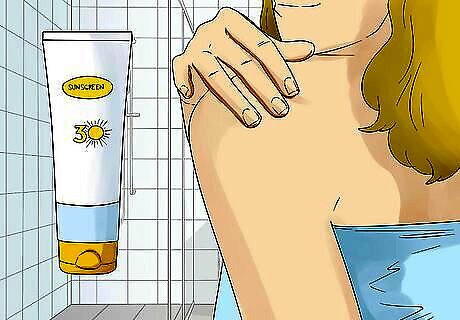
Use sunscreen every day. Sun exposure can temporarily brighten skin by giving you a tan, but in the long term it is extremely damaging. Letting your skin burn or get tan all summer long can lead to wrinkles, spots, and the possibility of skin cancer. Apply sunscreen to your face before you leave the house, even during the winter. Use sunscreen on your neck, shoulders, chest, arms, and everywhere else that tends to get more exposure. When you're wearing shorts or going to the beach, make sure you cover your legs, too.
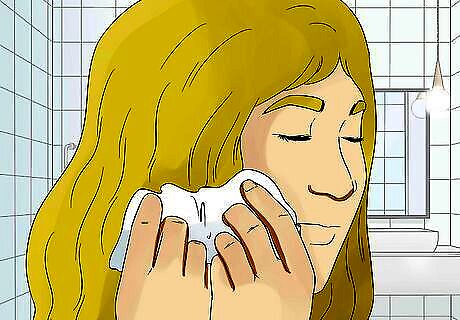
Don't wear makeup to bed. Leaving makeup on your face overnight is hard on your skin, because you're allowing chemicals to seep in all night. By morning your skin has completely absorbed the makeup, and it's probably the worse for wear. Use makeup remover and rinse off the traces with cool or lukewarm water every night before you go to bed. Don't scrub makeup off your face, since this can cause it to get irritated and damage the skin. Use a good makeup remover and dab it with a towel instead. Try this trick for removing eye makeup: dab a cotton swab soaked in makeup remover on your eyelashes and around your eyes. The makeup will wipe right off.
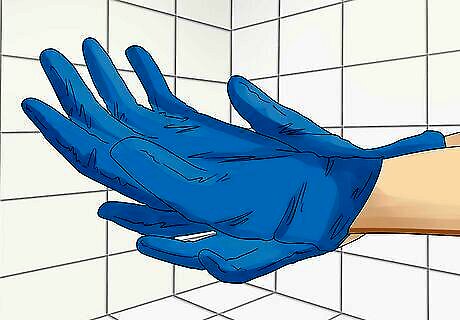
Protect your skin from harsh elements. Skin toughens in response to exposure to chemicals, extreme temperatures, and abrasive materials. Keep your skin soft and sensitive by taking these precautions: Wear gloves during the winter to keep your hands from getting chapped. Protect the rest of your body with appropriately warm clothing. Wear gloves when you're cleaning with strong chemicals. Protect yourself from callouses by using knee pads, thick work clothes, and the proper safety equipment when you're working under harsh conditions.




















Comments
0 comment